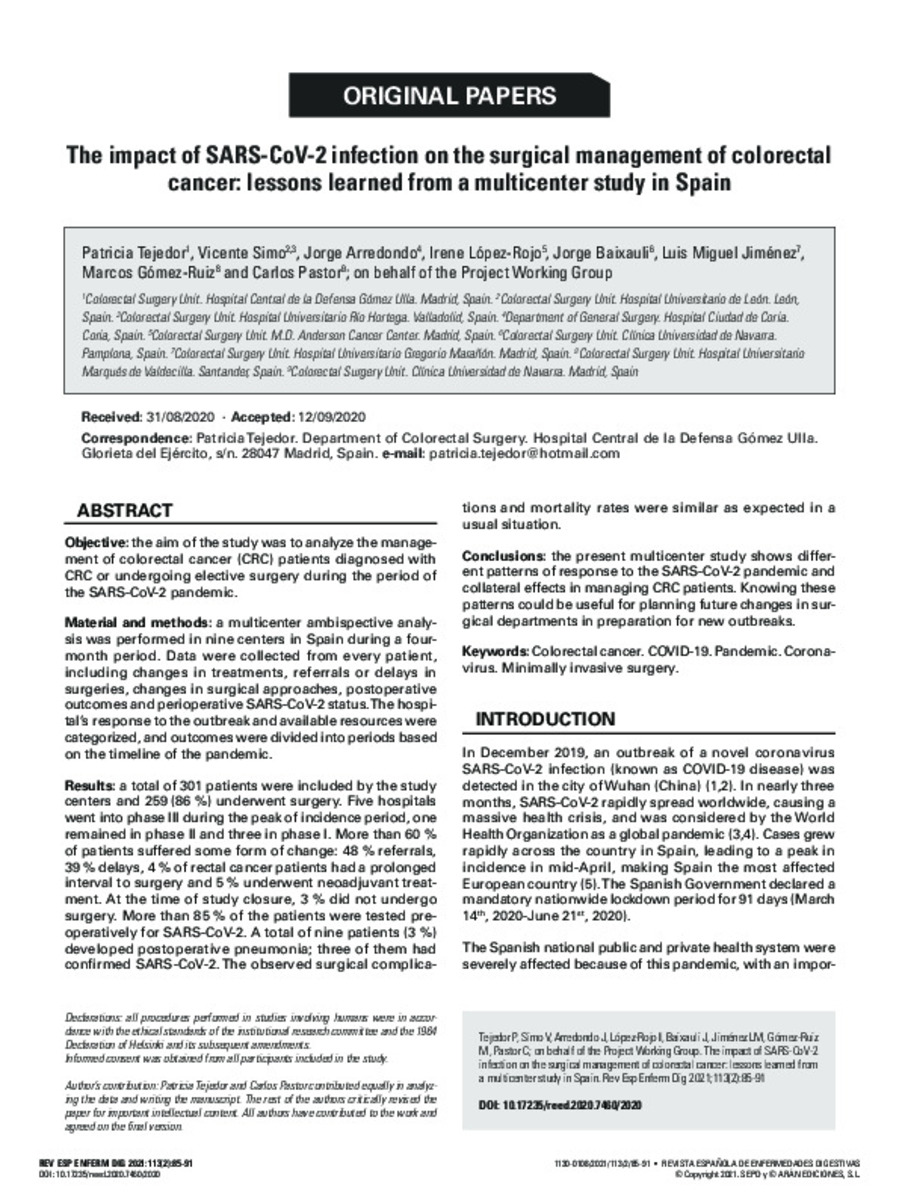The impact of SARS-CoV-2 infection on the surgical management of colorectal cancer: lessons learned from a multicenter study in Spain
Keywords:
Colorectal cancer
COVID-19
Pandemic
Coronavirus
Minimally invasive surgery
Note:
REED is an open-access journal, which means that all its contents, whether text, images or—when appropriate—audiovisual materials, are accessible free of charge to non-commercial, individual users, licensed under Copyright and Creative Commons BY NC ND.
Citation:
Tejedor, P. (Patricia); Simó, V. (Vicente); Arredondo, J. (Jorge); et al. "The impact of SARS-CoV-2 infection on the surgical management of colorectal cancer: lessons learned from a multicenter study in Spain". Revista Española de Enfermedades Digestivas. 113 (2), 2021, 85 - 91
Statistics and impact
0 citas en

0 citas en

Items in Dadun are protected by copyright, with all rights reserved, unless otherwise indicated.








